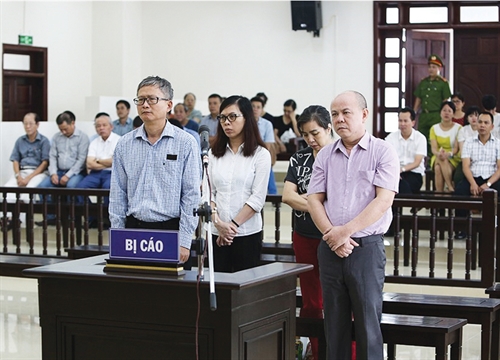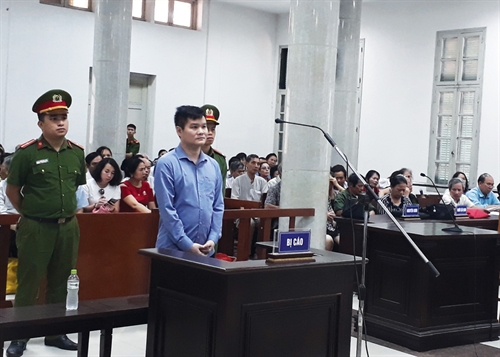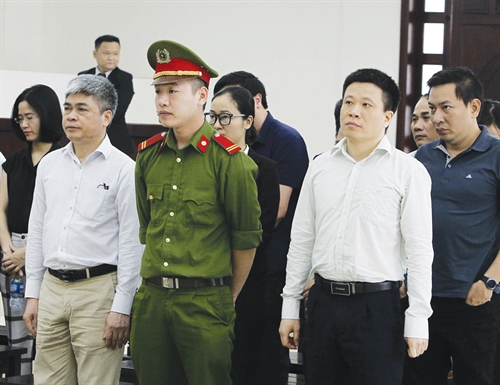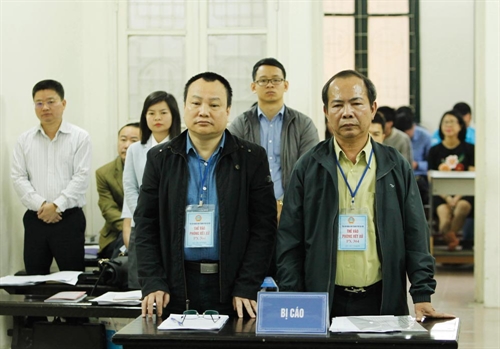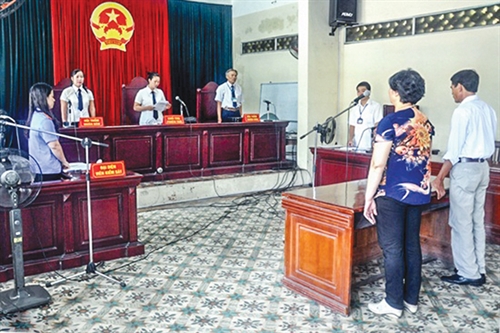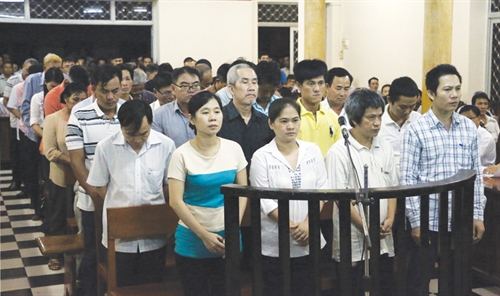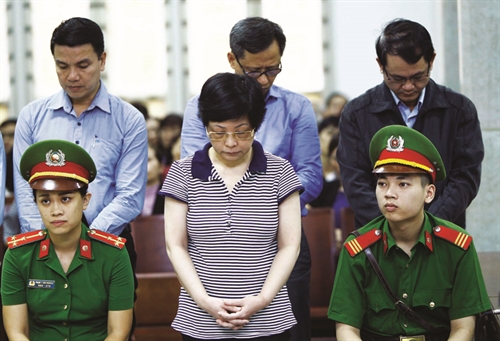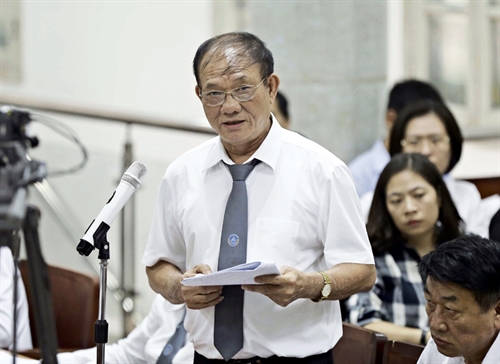The article discusses recent provisions of Vietnamese law and international legal instruments concerning the recognition and enforcement of foreign arbitral awards in Vietnam.
Tuong Duy Luong
Lawyer, arbitrator of Vietnam International Arbitration Center
Considering and recognizing foreign arbitral awards in Vietnam is not merely a legal procedure, right of claimants or responsibility of executants or debtors. It is a matter of national sovereignty closely associated with obligations of Vietnamese citizens and entrepreneurs or foreigners currently residing, working or doing business in Vietnam.
That’s why not any foreign arbitral awards that are requested to be recognized and enforced in Vietnam can be accepted and recognized by Vietnamese courts. The acceptance of such a request also depends on whether Vietnam and the concerned foreign state are bound by international legal instruments or have diplomatic ties with each other. Therefore, a foreign arbitral award can only be accepted for recognition and enforcement in Vietnam when it meets certain conditions.
Foreign arbitral awards qualifying for recognition and enforcement in Vietnam
Under Article 424.1 of the 2015 Civil Procedure Code (the CPC), the following foreign arbitral awards may be considered by competent Vietnamese courts for recognition and enforcement in Vietnam:
• Awards of foreign arbitrators whose country and the Socialist Republic of Vietnam are contracting parties to a treaty on recognition and enforcement of foreign arbitral awards.
So far, Vietnam and 158 other countries around the world have joined the 1958 New York Convention on the Recognition and Enforcement of Foreign Arbitral Awards (the Convention), which is a multilateral treaty on international arbitration legally binding on contracting states. Besides, Vietnam has concluded numerous bilateral agreements on the same issue with many foreign countries. When a claimant in an arbitral award issued in one of these contracting states requests recognition and enforcement of such award in Vietnam, a competent Vietnamese court is obliged to accept the request for consideration and decision.
• Foreign arbitral awards made in non-contracting states which have no bilateral or multilateral agreements with Vietnam may still be considered for recognition and enforcement in Vietnam on a reciprocal basis.
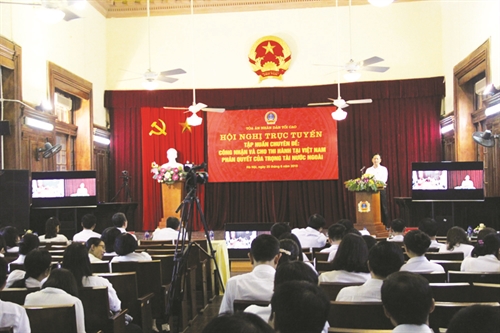 |
| Nguyen Van Tien, a judge of the Supreme People’s Court, gives a lecture on recognition and enforcement of foreign arbitral awards in Vietnam__Photo: Internet |
Arbitral decisions qualifying as awards and awards identified as foreign arbitral awards under Vietnamese law
As per Article 242.3 of the CPC, foreign arbitrations and their awards can be identified in accordance with Vietnamese law on commercial arbitration. However, nowhere in the world arbitration is the only means of dispute resolution, and during arbitral proceedings, arbitrators may make various decisions, not only awards. Therefore, it is necessary to distinguish arbitral awards from decisions not identified as such.
Arbitral decisions qualified as foreign arbitral awards under the Convention and the guide to the interpretation of the Convention of the International Council for Commercial Arbitration (ICCA)
Every country in the world has many mechanisms for out-of-court dispute resolution such as conciliation and expert determination but not all out-of-court dispute resolution methods are qualified as arbitration.
Article I.2 of the Convention states: “The term “arbitral awards” shall include not only awards made by arbitrators appointed for each case but also those made by permanent arbitral bodies to which the parties have submitted.”
Article II.1 of the Convention stipulates: “Each Contracting State shall recognize an agreement in writing under which the parties undertake to submit to arbitration all or any differences which have arisen or which may arise between them in respect of a defined legal relationship, whether contractual or not, concerning a subject matter capable of settlement by arbitration.”
So, Article I.2 of the Convention provides only two forms of arbitration while Article II.1 requires arbitral decisions to be expressed in writing. However, the Convention provides no criteria for identifying a decision of an arbitral tribunal as an arbitral award.
According to the ICCA’s guide to the interpretation of the 1958 New York Convention: A Handbook for Judges, arbitration is a method of dispute settlement in which the parties agree to submit their dispute to a third person who will render a final and binding decision in place of the courts.
This definition stresses three main characteristics of arbitration: (i) arbitration is consensual since it is based on the parties’ agreement; (ii) arbitration leads to a final and binding resolution of the dispute; and (iii) arbitration is regarded as a substitute for court litigation. Consequently, the following arbitral decisions qualify as arbitral awards:
- Final awards, i.e., awards that put an end to the arbitration. An award dealing with all the claims on the merits is a final award. So is an award denying the tribunal’s jurisdiction over the dispute submitted to it;
- Partial awards, i.e., awards that give a final decision on part of the claims and leave the remaining claims for a subsequent phase of the arbitration proceedings. An award dealing with the claim for extra costs in a construction arbitration and leaving claims for damages for defects and delay for a later phase of the proceedings is a partial award (this term is sometimes also used for the following category, but for a better understanding, it is preferable to distinguish them);
- Preliminary awards, sometimes also called interlocutory or interim awards, i.e., awards that decide a preliminary issue necessary to dispose of the parties’ claims, such as a decision on whether a claim is time-barred, on what law governs the merits, or on whether there is liability;
- Consent awards, i.e., awards recording the parties’ amicable settlement of the dispute.
An award issued by default, i.e., without the participation of one of the parties, also qualifies as an award to the extent it falls within one of the categories listed above.
By contrast, the following decisions are generally not regarded as awards:
- Procedural orders, i.e., decisions that merely organize the proceedings;
- Decisions on provisional or interim measures. Because they are only issued for the duration of the arbitration and can be reopened during that time, provisional measures are not awards. Courts have held the contrary on the theory that such decisions terminate the dispute of the parties over provisional measures, but this is unpersuasive: the parties did not agree to arbitration in order to resolve issues of arbitral procedure.
Finally, the name given by the arbitrators to their decision is not determinative. Courts must consider the subject matter of the decision and whether it finally settles an issue in order to decide whether it is an award.
It can be noted that ICCA interprets arbitral awards in a broad sense, not limiting them to partial awards but including also decisions on preliminary issues necessary to dispose of parties’ claims, such as decisions on whether a claim is time-barred or on what law governs the merits. Decisions of arbitral tribunals on jurisdiction are also treated as arbitral awards. By this ICCA’s interpretation, we can say that not a few countries adopt a more inclusive concept of arbitral award.
Identification of foreign arbitral awards under the Convention
Article I.1 of the Convention stipulates: “This Convention shall apply to the recognition and enforcement of arbitral awards made in the territory of a State other than the State where the recognition and enforcement of such awards are sought, and arising out of differences between persons, whether physical or legal. It shall also apply to arbitral awards not considered as domestic awards in the State where their recognition and enforcement are sought.”
As such, the Convention specifies two cases where an arbitral award is deemed foreign: (i) It is made in the territory of a country other than the country where its recognition and enforcement are sought, and (ii) It is not considered a domestic award in the country where its recognition and enforcement are sought.
In the first case, the ground for determining whether an arbitral award is domestic or foreign is the location where such award is made. If it is made outside the territory of the country where its recognition and enforcement are sought, it will be considered a foreign one. This case is chosen by most countries.
In the second case, which is specified by the Convention in a more open manner, whether an arbitral award is considered a domestic or foreign one depends on domestic laws. An arbitral award made in Vietnam may therefore be considered a foreign arbitral award when its recognition and enforcement in Vietnam are sought.
Since arbitral tribunals may issue various decisions of different natures during arbitration proceedings, the concept and definition of arbitral awards vary from one member state of the Convention or arbitration to another. So is the distinction between foreign and domestic arbitral awards.
Vietnamese judges are therefore required to distinguish clearly decisions of arbitral tribunals which are not regarded as awards from those qualifying as awards and to identify which arbitral awards as foreign ones.
Arbitral awards and foreign arbitral awards as per Vietnamese law
Arbitral decisions and arbitral awards are distinctively defined in Articles 3.9 and 3.10 of the Vietnamese Law on Commercial Arbitration (the LCA) as follows: “Arbitral decision means a decision of an arbitral tribunal issued during the dispute resolution,” and “Arbitral award means a decision of an arbitral tribunal resolving the entire dispute and putting an end to arbitral proceedings.”
Since only decisions of arbitral tribunals that resolve all dispute claims and lead to conclusion of arbitral proceedings are regarded as arbitral awards, other arbitral decisions aiming merely to organize proceedings and those on jurisdiction or on part of the claims do not qualify as arbitral awards under Vietnamese law.
In our opinion, the definition of arbitral awards under the LCA is inadequate. This leads to a reality that all Vietnamese arbitral tribunals resolving disputes under the Law have issued decisions on resolution of entire disputes while it could have been more reasonable to issue decisions on resolution of part of disputed matters.
Regarding foreign arbitral awards, Article 424.3 of the CPC stipulates: “Foreign arbitrations and foreign arbitral awards shall be determined in accordance with Vietnamese law on commercial arbitration.”
Under Article 3.11 of the LCA, foreign arbitration is an arbitration formed under a foreign law on arbitration and selected as agreed by the parties to resolve a dispute outside or inside the Vietnamese territory. It must be noted that the term “foreign arbitration” refers to two forms of arbitration, including statutory arbitration and ad hoc arbitration (this totally conforms to Article I.2 of the Convention). Meanwhile Article 3.12 of the LCA defines: “Foreign arbitral award means an award pronounced by a foreign arbitration outside or inside the Vietnamese territory which is selected as agreed by the parties to settle their disputes.”
Article 424.2 of the CPC further clarifies the term “foreign arbitral award” as follows: “A foreign arbitral award referred to in Clause 1 of this Article and considered for recognition and enforcement in Vietnam is a final one of an arbitral tribunal to settle the whole contents of a dispute and terminate arbitral proceedings and have taken effect.”
So it can be said that Vietnamese law identifies the nationality of an arbitral award based on the nationality of arbitration/arbitrators instead of the location where such award is made. In other words, all awards of an arbitral tribunal formed under a foreign arbitration law, regardless of whether they are made inside or outside the Vietnamese territory, will be considered as foreign ones and must undergo the recognition and enforcement procedures prescribed by Vietnamese law. The above-mentioned provisions of Vietnamese law are aligned with the provisions of Article I.1 of the Convention regarding arbitral awards not considered as domestic ones.
However, the above-mentioned provisions should not be applied in a rigid manner in order to avoid unreasonable refusal to recognize and enforce foreign arbitral awards. For example, in case a foreign arbitral tribunal has made several partial awards (to deal with different claims in the dispute) but its final award clearly states that previously pronounced partial awards constitute its integral parts, then such partial awards must be considered as components of an arbitral award to resolve the whole dispute, put an end to arbitral proceedings and therefore qualify for recognition and enforcement in Vietnam.
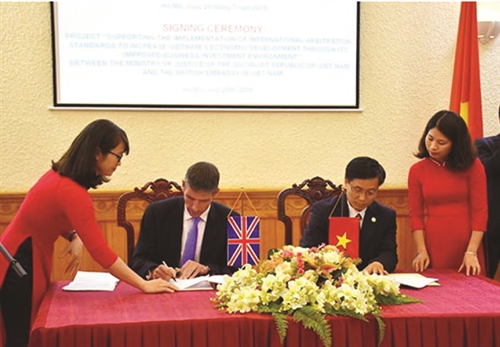 |
| Signing ceremory of the UK-funded Project “Supporting the implementation of international arbitration standards to increase Vietnam’s economic development through its improved business investment environment”__Photo: https://moj.gov.vn |
Entities entitled to request recognition and enforcement of foreign arbitral awards in Vietnam and conditions for making requests
Claimants in foreign arbitral awards or their at-law or authorized representatives are entitled to request the recognition and enforcement of such awards in Vietnam.
To make a request, an individual claimant must reside and work in Vietnam while an institutional claimant must be headquartered in Vietnam. Claimants that neither reside nor do business or are not headquartered in Vietnam must
have property related to the enforcement of foreign arbitral awards in Vietnam by the time of making their requests.
Responsible for settling requests for recognition and enforcement of foreign arbitral awards in Vietnam are competent Vietnamese courts.
After a competent first-instance court decides to recognize or not to recognize a foreign arbitral award, any party that disagrees with such court’s decision may file an appeal or a procuracy may file a protest. Such appeal or protest will be considered by a superior people’s court.
To date, Vietnam has established three superior people’s courts in Hanoi, Da Nang and Ho Chi Minh City to take charge of the three regions (the north from Ha Tinh province northward, the central Vietnam covering central coastal and Central Highlands provinces from Quang Binh southward, and the south).
Foreign arbitral awards recognized by competent Vietnamese courts will become effective like judgments or rulings of Vietnamese courts and be enforced according to the civil judgment execution procedures.
Courts that have issued decisions to recognize and enforce foreign arbitral awards have to hand over directly or send by post or via the Ministry of Justice (for recognition and enforcement requests received via the Ministry of Justice) such decisions to claimants and executants of such awards or their lawful representatives, same-level procuracies and civil judgment execution agencies as defined by the CPC.
The Vietnamese State guarantees the transfer of money and property overseas for the enforcement of foreign arbitral awards recognized by Vietnamese courts in accordance with Vietnamese law.
Claimants requesting Vietnamese courts to recognize foreign arbitral awards for enforcement must pay a fee and bear all expenses for overseas delivery of procedural documents of Vietnamese courts related to their request.-
